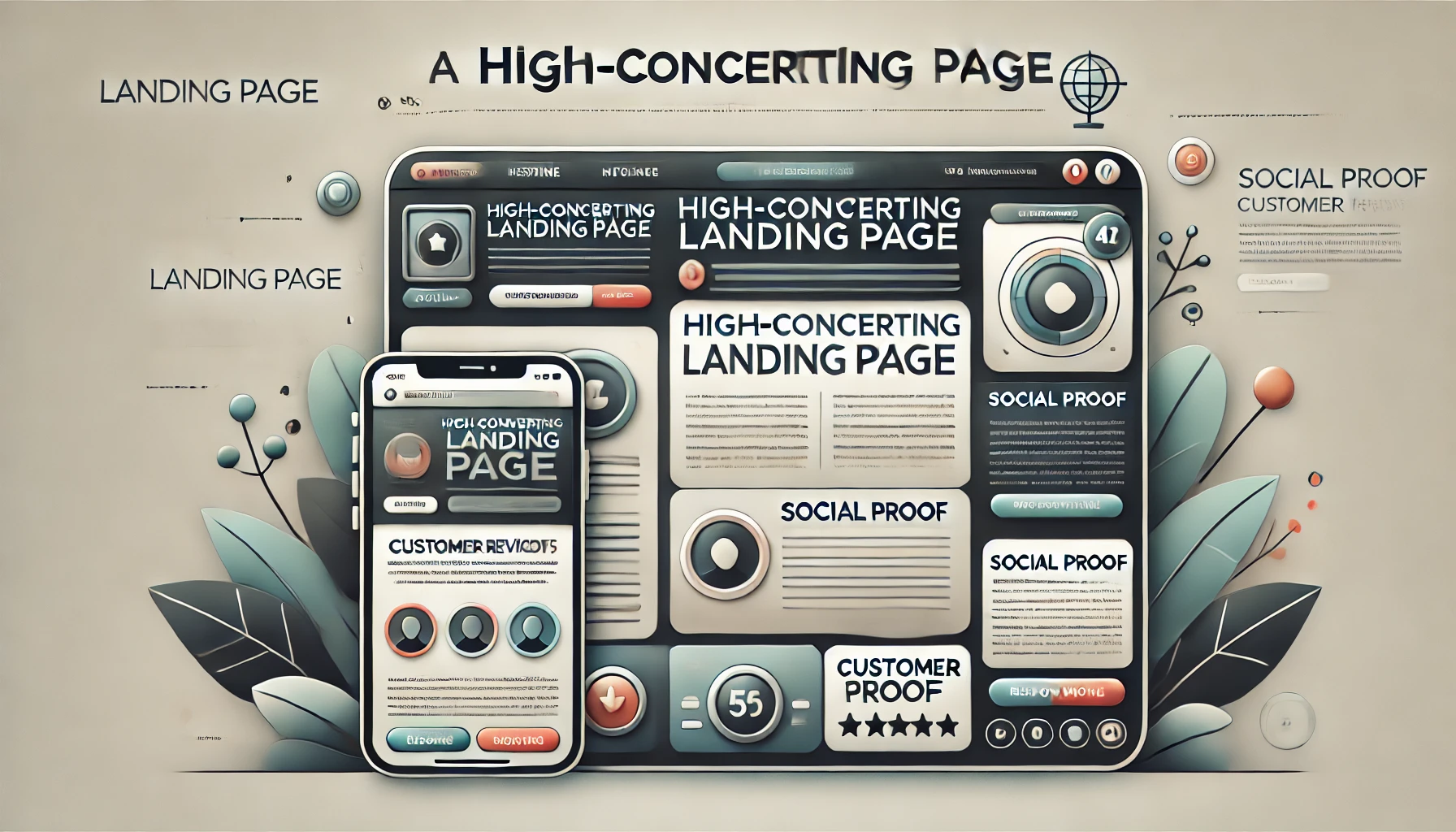SHARE

The Ultimate Guide to Crafting High-Converting Landing Pages for Your Business
A landing page is often the first impression potential customers have of your brand. Crafting a high-converting landing page can significantly impact your business's success by turning visitors into leads and, eventually, loyal customers. Here's a detailed guide to help you design landing pages that convert.
1. Understand the Purpose of a Landing Page
Landing pages are standalone web pages designed with a single goal: to encourage visitors to take a specific action, such as signing up for a newsletter, downloading an ebook, or purchasing a product. Unlike regular web pages, landing pages eliminate distractions, guiding users toward one clear call-to-action (CTA).
2. Key Elements of a High-Converting Landing Page
a. A Compelling Headline
- Why it matters: Your headline is the first thing visitors see. It should grab attention and communicate the page's value instantly.
- Tips:Make it clear and concise.
- Address a pain point or a need.
- Use power words like "ultimate," "proven," or "guaranteed."
b. Persuasive Subheadline
- Why it matters: The subheadline supports the main headline by providing additional context or benefits.
- Tips:Use it to elaborate on the main value proposition.
- Keep it short and engaging.
c. Eye-Catching Visuals
- Why it matters: People process visuals faster than text.
- Tips:Include high-quality images or videos relevant to your product or service.
- Use visuals to demonstrate product benefits.
d. A Clear and Focused Call-to-Action (CTA)
- Why it matters: The CTA is the action you want visitors to take.
- Tips:Use action-oriented language, like "Get Started," "Download Now," or "Sign Up."
- Make the CTA button prominent with contrasting colors.
e. Concise and Benefit-Oriented Copy
- Why it matters: Your copy should explain what the user gains by taking action.
- Tips:Focus on benefits rather than features.
- Use bullet points for readability.
f. Social Proof
- Why it matters: Testimonials, reviews, and case studies build trust.
- Tips:Include customer quotes, ratings, or success stories.
- Add logos of reputable brands you've worked with.
g. Minimal Distractions
- Why it matters: A cluttered page can confuse visitors and reduce conversions.
- Tips:Remove unnecessary navigation menus or links.
- Stick to one goal per landing page.
h. Mobile Optimization
- Why it matters: More than half of web traffic comes from mobile devices.
- Tips:Ensure the page is responsive.
- Test the page's loading speed and usability on mobile devices.
3. Proven Techniques to Boost Conversions
a. A/B Testing
- Experiment with different headlines, CTAs, colors, or layouts.
- Use tools like Google Optimize or Optimizely to identify what works best.
b. Include a Countdown Timer for Urgency
- A countdown timer can push visitors to act quickly, especially for limited-time offers.
c. Use Exit-Intent Popups
- Capture leads who are about to leave with an attractive offer or discount.
d. Personalize the Page
- Tailor the content based on the user's location, interests, or previous interactions.
4. Tools for Building Landing Pages
- Unbounce: Easy-to-use drag-and-drop editor with analytics.
- Leadpages: Pre-designed templates for quick setup.
- ClickFunnels: Comprehensive platform for creating sales funnels.
- Instapage: Advanced personalization and testing features.
5. Measuring the Success of Your Landing Page
a. Conversion Rate
- Formula: (Number of Conversions / Total Visitors) x 100
- A high conversion rate indicates that your page resonates with your audience.
b. Bounce Rate
- A high bounce rate may indicate that your page content or design isn't engaging.
c. Time on Page
- Longer time on the page often means visitors find your content valuable.
d. Heatmaps and Click Tracking
- Tools like Hotjar or Crazy Egg can show where visitors are clicking and how they're interacting with your page.
6. Common Mistakes to Avoid
- Overloading with Information: Keep it simple and focused.
- Generic CTAs: Make them specific and relevant.
- Ignoring Analytics: Always track performance and optimize accordingly.